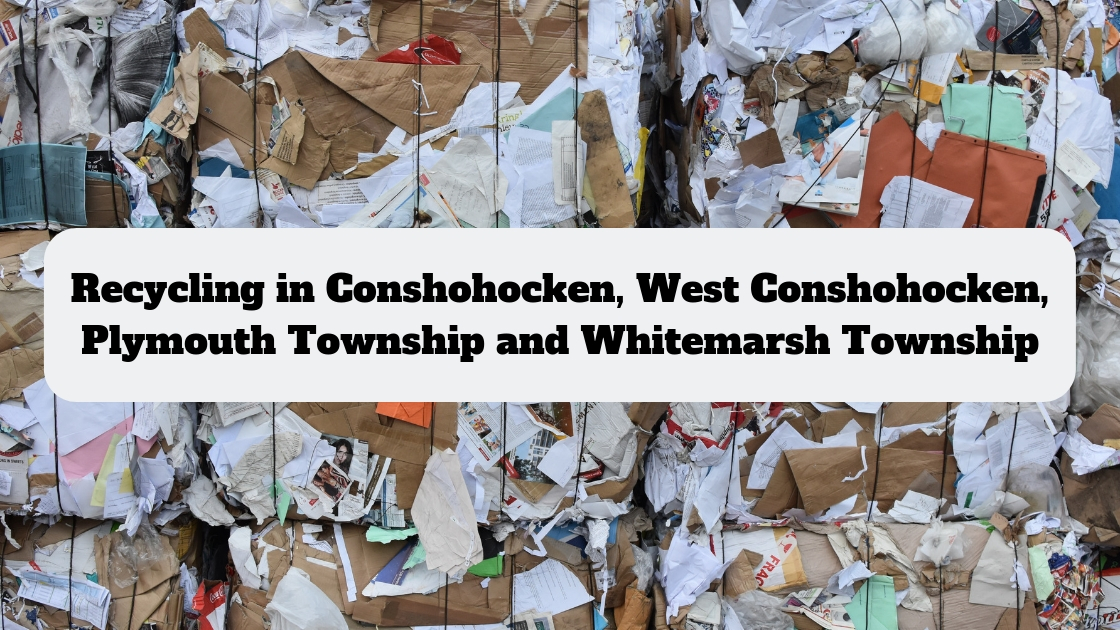Over the past few months we have read several articles in Philadelphia area publications detailing the new reality of recycling. China has stopped buying recycled plastic, no new market for it has developed, and this has resulted in municipalities paying to get rid of its recyclables instead of it generating some revenue.
Here are two articles on the topic (it is beneficial to read them to grasp the full situation):
- Why recycling is now a money loser, not a moneymaker for Philly
- Rising costs push Philly recycling to back burner – literally
So now that recycled items aren’t generating income, what is happening to them? According to the second article listed above, Philadelphia’s recycling is getting burned at a rate of 50%. The location of the facility burning a portion of Philadelphia’s recycling is in Plymouth Meeting. From the article:
As of October, about half of Philadelphia’s recyclables have been getting incinerated – a result of skyrocketing costs nationwide caused by stringent new policies on scrap imports in China, formerly the top destination for American recyclables.
“It’s not an ideal solution, but the way we see it, it’s much better than landfilling it,” said Scott McGrath, Environmental Planning Director for the Philadelphia Streets Department.
The article then goes into which companies Philadelphia has had contracts with to handle its recycling and the costs associated with this. The article then shares:
WM (Waste Management) can only take on half of Philadelphia’s recyclables, so the other half are being burned in incinerators operated by Covanta in Chester City and Plymouth Meeting.
Covanta calls its incinerators “waste-to-energy facilities” – but Mike Ewall, founder and director of the local Energy Justice Network, called that term “unscientific horses—.”
“I’m pretty appalled by the fact the city is letting half the recyclables be burned,” Ewall said. He asserted that any energy collected through incineration pales in comparison to the air pollution, emissions and ash created during the process.
So these articles made us interested in what is happening with the recycling from the municipalities MoreThanTheCurve.com covers. Here is what we learned:
Conshohocken
We can’t provide an answer for Conshohocken because because Borough of Conshohocken officials chose not to answer our three inquiries (which is not uncommon).
West Conshohocken
West Conshohocken did not answer our inquiry either, but we found the answer because it utilizes the same company to collect its recycling as Whitemarsh Township. See the full answer under Whitemarsh Township.
Whitemarsh Township
Whitemarsh Township did answer and directed us to J. P. Mascaro & Sons, an Audubon-based company that owns and operates its own landfills, transfer stations, recycling facilities and compost centers. It also collects and hauls trash and/or recycling for private and municipal clients.
A representative of Mascaro sent us a press release about its Birdsboro recycling facility. West Conshohocken and Whitemarsh’s recycling is taken to this facility. From the press release:
As many major waste industry players move in directions limiting the customers options related to recycling, local family owned and operated waste removal company, J. P. Mascaro & Sons,is“doubling down”. Mascaro in recent years completed construction of a “cutting edge” $20,000,000 recycling plant in Birdsboro, Pennsylvania. The plant handles a “broad based” list of commodities with some of the most advanced and sophisticated equipment available in the industry. Recently, Mascaro was selected as a partner in an innovated recycling project with the Materials Recovery for the Future(MRFF) to recover flexible plastic packaging (FPP) presently not being recycled. The project is a multi-million-dollar endeavor
and its intent is to create a market for a recyclable product (i.e. R-Flex) and at the same time improve the overall quality of other recyclable products making them easier to find ultimate destinations to be recovered and reused. Mascaro recently announced it will be constructing an additional 50,000 square foot building equipped with major recycling equipment adjacent to the Total Recycle complex in Birdsboro. The project is to commence in the Spring of 2019 and be completed by the Spring of 2020 upon completion of this building, Mascaro’s recycling network in Birdsboro will consist of a total of 160,000 square feet of buildings.
J. P. Mascaro Sr., Director of Sustainability for Mascaro, said, our company is committed to recycling despite the obstacles presented by the China ban as well as depressed commodity markets,our company has achieved throughout the years by not accepting the status quo and looking “outside the box” for solutions. We feel confident that adding to our company owned and operated infrastructure will place our company in a position to serve our customers over the long term. In business, cost vs. benefit drives most decisions but the element of social consciousness and awareness and our finite resources must be also taken into account when considering recycling decisions.
Plymouth Township
Christopher Loschiavo, director of Public Work for Plymouth Township, shared that the township is part of the Montgomery County Consortium of Communities that includes Springfield Township, Abington Township, Cheltenham Township, Hatboro Borough, Upper Dublin Township, and Upper Moreland Township. Each of these municipalities collects its own recycling and deliver it to a transfer station in Upper Dublin. J.P. Mascaro & Sons manages this facility and from there the recycled materials are transferred to the Birdsboro facility (see Whitemarsh Township above for full description).
Loschiavo also shared the following:
The recycle market is certainly bad at the moment. About 8 years ago before the market turned upside down Plymouth Township was receiving about $12.00 for every ton of recycling. Last month we were paying $43.63 per ton, nearly a $56 swing from 8 years ago. To put things into perspective, we pay $57.08 per ton at the Covanta trash to steam plant to discard trash. There is not much separation between the two nowadays.
Loschiavo also mentioned that not everything that makes it to Birdsboro is recycled. There is residual material (read the first article linked above for a good description as to what is recyclable and how it is sorted). He offered that he doesn’t know the amount of residual that find its way to a landfill or is burned. He further stated:
I would like to think and hope that if the recycling is not contaminated in any way that it is finding its way to a recycler who can convert this waste into a reusable material. However, the old adage was when in doubt RECYCLE IT has clearly turned to when in doubt THROW IT OUT!
Having said that, Plymouth Township is doing its best to limit the amount of contamination or non-recycling in the recycle bin. We are able to monitor what is being recycled because we still use a rear loader and can see the recycling when we dump it. The biggest problem contaminating bins is plastic bags and food waste left in containers. We have done our best to educate residents and continue to tag bins for unwanted items and food contamination so that our material is clean and recyclable and most importantly marketable.
So that is the state of recycling in these communities. Let us know your thoughts in the comments.

